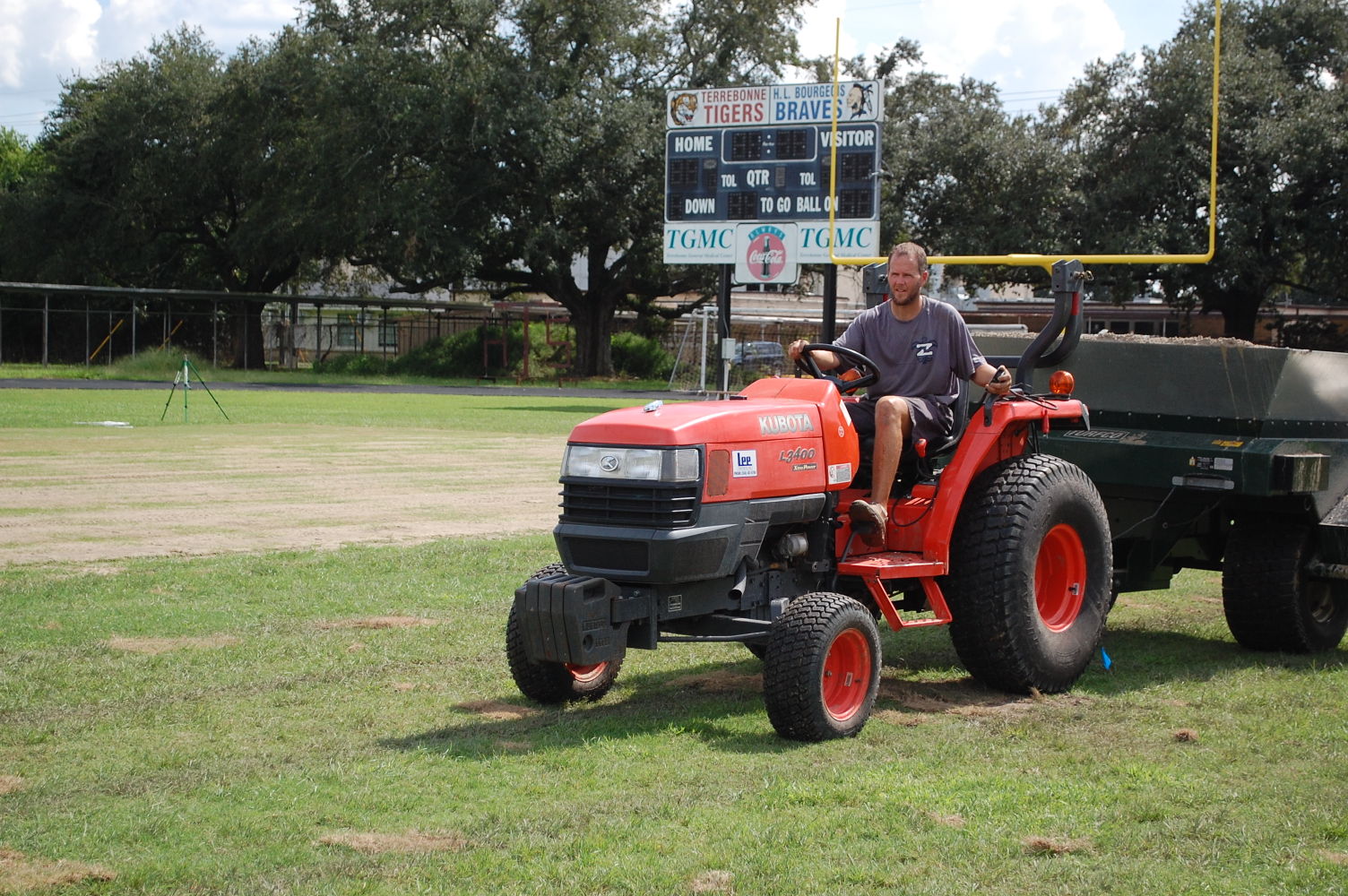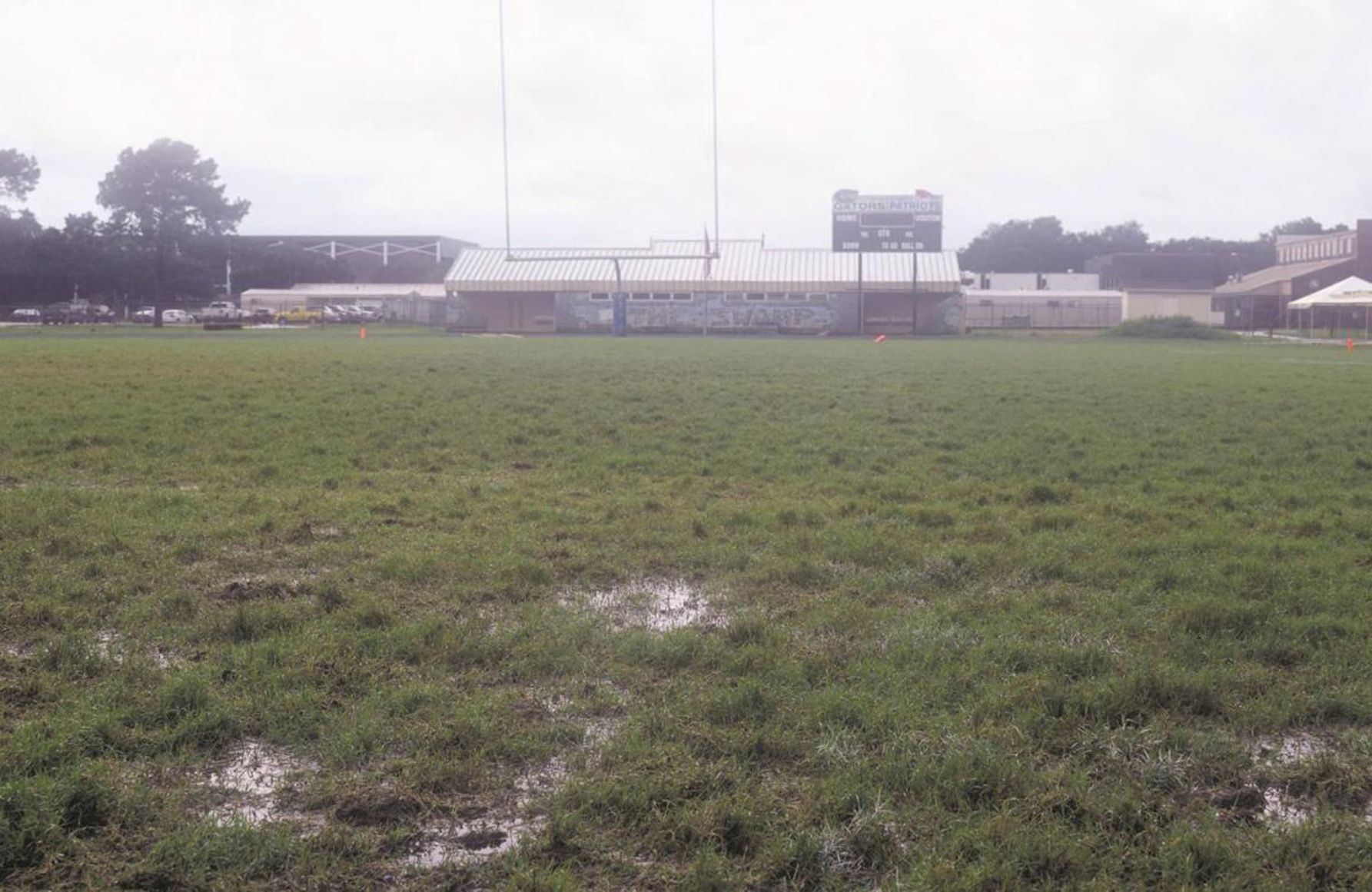
What to Know Now About COPD
October 19, 2018
Terrebonne gets its turf … but it shouldn’t have taken this long!
October 24, 2018Terrebonne Parish football coaches, student-athletes and athletic officials got the news they’ve waited years for last week.
After years of fighting Mother Nature, finally, they’re getting turf fields at the parish’s two public high school football stadiums.
The School Board announced at their regularly scheduled meeting last week that they’d allocate $2 million out of their Buildings, Food Service and Transportation Fund to pay for the project, which is scheduled to be quickly bidded out over the coming weeks in hopes of having the fields ready for the 2019-20 athletic year.
The board approved the project by a 5-4 vote. Board members L.P. Bordelon, Donald Duplantis, Gregory Harding, Richard Jackson and Roosevelt Thomas voted in favor, while Brenda Babin, Debi Benoit, Vicki Bonvillain and Roger Dale DeHart voted against.
The debate about the turf lasted several minutes with those in favor saying that it was a safety issue for local student-athletes, adding that the issue has been on-going locally and was only getting worse.
Those not in favor didn’t necessarily oppose the project, but questioned the timing, citing other projects on the horizon and the cost.
But local coaches questioned this week are unanimously in support, saying that the vote is a huge game changer for Terrebonne Parish athletics.
Terrebonne football coach Gary Hill said the grass fields locally host too many events and are just not able to keep up with the amount of games/events hosted on them each year.
He said on the average year, Terrebonne High School’s field has more than 130 events on it. That’s counting varsity, junior varsity, freshman, middle school and youth football games, soccer matches, band festivals and all other activities on the field. And that’s not even in a full, 12-month year. That tally is just from the nine school months of August through May.
When Lafourche Parish was getting the debate started regarding their turf fields, Central Lafourche coach Keith Menard talked to natural grass experts who said that to keep a grass field in playable condition, there should be just 20 contests per year on the field — given proper weather conditions. Menard, at the time, said the experts said stretching to 30 contests per year was possible, but that there would be some deterioration in the quality of grass at that point.
Terrebonne’s fields host more than 4 times that much and Hill said there is just no chance to keep up with it all, adding that even with dry weather, the fields would take a beating.
“It becomes a safety issue, first and foremost,” Hill said. “We want to make sure that we’re taking care of our student-athletes. We do the best we can, but with the amount of activities on our fields, there’s nothing we can do to keep up. This isn’t about just football. This is about football, soccer, track, baseball and softball can use it. Band uses it. It’s great for everyone.”
Ellender football coach David McCormick chimed in on the issue, saying that the vote was a relief to he and his coaching staff.
In years past, Ellender has had to move home games to the road to compensate for soggy conditions — a financial loss of thousands of dollars to the school’s football program. But more important than the finances, McCormick said, is that now, student-athletes will have firm, stable ground under their feet.
“It’s a big weight off our shoulders,” he said. “In a perfect world, we’d all want our own stadiums. I’d love for our kids to have their own stadium. But with the current financial situation that the school board is in, we know that this is the most feasible way to fix our problem, so we support it. This is going to be great for our kids.”
Hill said at a $1 million price tag per field, the project will actually pay for itself.
He said because the field at Terrebonne High School gets so badly abused, the school has to re-sod and re-level the field multiple times in a year to keep it in playable condition. To do that effectively, Hill said that costs about $100,000 per year.
An artificial surface will cost $1 million and will last 10-12 years. To replace an old, outdated surface with a new one is also cheaper than the cost of switching from grass to turf, so future installations will not be as expensive.
And once the turf is laid down, TPR, middle school and junior varsity games — all things that have become a hinderance to the grass — will now be gladly welcomed back into the fold.
“The sun will wear this thing out before we ever will,” Hill said. “We’re going to be getting our money’s worth.”
And in addition to safety and budgetary concerns, coaches are excited to finally be able to relax a little and enjoy some peace of mind.
Hill said being a high school football coach is hard enough without having to worry about the weather and possibly moving home games to other venues.
McCormick said being a football coach is like being a car salesman because you’re constantly being asked to raise money and do different things in the community to generate interest in your team.
So to NOT have to worry about mowing, painting or taking care of a field will be one less thing off he and his colleagues plate.
“Anytime we can give some time to the actual football part — the X’s and the O’s, that’s something us coaches love,” McCormick said.
HOW THE OTHER HALF LIVES
If Terrebonne’s process mirrors Lafourche’s, this time next year, we will be wondering why this took so long.
Coaches in Lafourche Parish say they love their fields, touting that there are advantages to going away from natural grass.
For starters, those teams can practice Monday-Friday — even if it rains — with no worry about a practice field.
That edge was a huge factor in an early-season game between Thibodaux and Vandebilt when both Thibodaux coach Chris Dugas and Vandebilt coach Jeremy Atwell conceded that conditioning was a factor in the game.
And during the week, the grind is much easier as well, with little maintenance needed on the surface. In Lafourche, each team was given a turf cleaner, which has to be passed temporarily on the field to scrub it clean.
“It’s been a lot easier for us,” Thibodaux football coach Chris Dugas said. “It’s hands-off and it’s worry free. We’re able to get more work in and we don’t have to worry about in the back of our minds if someone is going to step on a pot hole or something like that and turn an ankle. It’s been a great situation for us.”
Follow Casey on Twitter for more.
https://twitter.com/casey_gisclair










